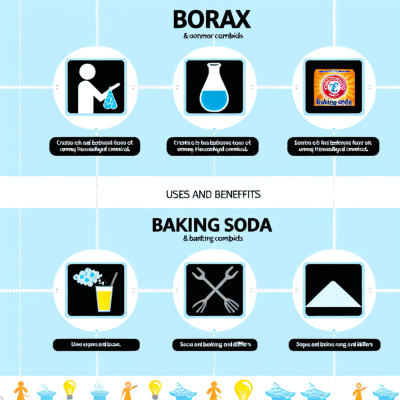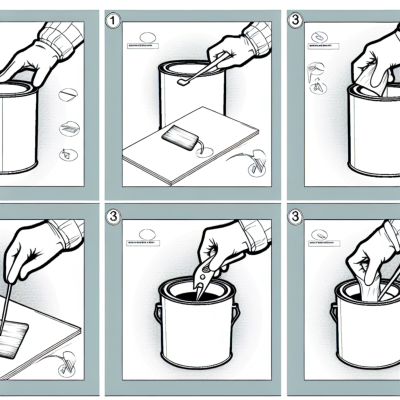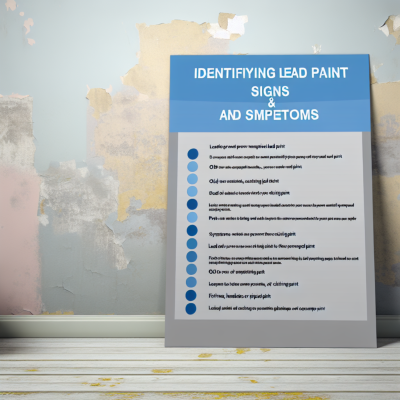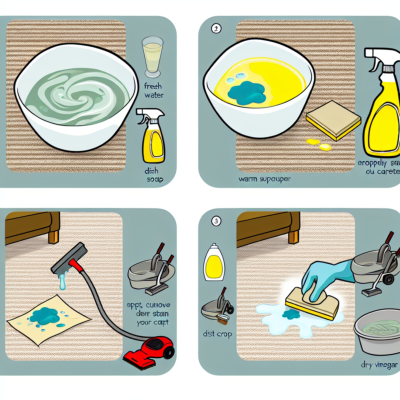Keys are a crucial part of our daily lives, providing access to our houses , cars , and private spaces. However, over time keys can become dirty, damaged, or lost , necessitating cleaning, organization, and replacement. This article will provide tips on how to clean keys using products like keysoap or simple DIY solutions. It will also discuss key organization strategies, including labeling and storage methods to avoid the frustration of searching for the right key. Finally, advice will be offered on copying house keys and replacing lost keys through locksmiths or upgraded keyless entry systems, while still maintaining security. Following these key maintenance guidelines can lead to greater convenience and peace of mind .
Keys are an essential part of our daily lives, providing access to our homes, cars, offices, and more. However, keeping track of all our keys can be a daunting task. This comprehensive guide will provide you with invaluable tips and tricks to maintain and organize your keys effectively, ensuring that you never lose or misplace them again.
Key maintenance
Regular maintenance is crucial to ensure the longevity and functionality of your keys. One key maintenance tip is to regularly clean your keys with a mild detergent and warm water. This will remove any dirt or grime that may affect their performance. Additionally, lubricating your keys with a silicone-based lubricant will help prevent rust and ensure smooth operation.
Key organization
Proper key organization is key to avoiding the frustration of searching for the right key when you need it the most. One effective way to organize your keys is by using a key holder or key rack. These can be wall-mounted or placed on a flat surface, providing a designated spot for each key. You can also label your keys using key tags or color-coded key covers to easily identify them.
By following these key maintenance and organization tips, you can simplify your life and have peace of mind knowing that your keys are in order. Say goodbye to the endless search for misplaced keys and hello to a more organized and stress-free lifestyle.
Effective Cleaning Techniques for Various Types of Keys
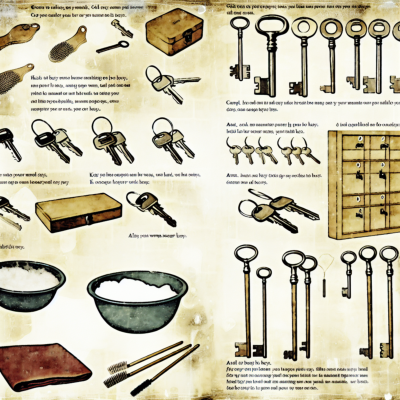
Keys are an essential part of our daily lives, allowing us to access our homes, cars, and offices. However, they can easily accumulate dirt, grime, and bacteria over time. Regular cleaning of your keys is crucial to ensure their smooth operation and longevity. Here are some effective cleaning techniques for various types of keys:
1. Metal Keys: Metal keys are the most common type of keys and can be easily cleaned using a simple solution of warm water and mild dish soap. Gently scrub the keys with a soft cloth or sponge to remove any dirt or residue. Rinse them thoroughly with clean water and dry them with a lint-free cloth.
2. Brass Keys: Brass keys require special care to maintain their shine. Create a paste by mixing equal parts of salt, vinegar, and flour. Apply the paste to the keys and let it sit for a few minutes. Then, scrub the keys with a soft toothbrush to remove any tarnish or stains. Rinse the keys with water and dry them thoroughly.
3. Plastic Keys: Plastic keys are commonly used for electronic devices and may require a more delicate cleaning approach. Use a mild cleaning solution, such as a mixture of water and gentle soap, and a soft cloth to clean the keys. Avoid using abrasive materials or harsh chemicals that can damage the plastic surface.
4. Electronic Keys: Electronic keys, such as key cards or key fobs, should be cleaned carefully to avoid damaging the internal components. Use a soft cloth or cotton swab dampened with isopropyl alcohol to gently clean the surface of the key. Be cautious not to get any liquid inside the electronic key.
5. Car Keys: Car keys often come into contact with dirt, oil, and other substances. To clean them, use a toothbrush dipped in a mixture of warm water and dish soap. Scrub the keys gently, paying attention to the grooves and crevices. Rinse the keys thoroughly and dry them completely before using them.
6. Remote Control Keys: Remote control keys can harbor a lot of bacteria and germs. To clean them, remove the batteries and wipe the keys with a disinfectant wipe or a cloth dampened with isopropyl alcohol. Pay extra attention to the buttons and crevices. Allow the keys to air dry before reinserting the batteries.
Remember to always handle your keys with clean hands and avoid exposing them to extreme temperatures or moisture. Regular cleaning and maintenance will ensure that your keys remain in good condition and function properly.
Can I soak keys in bleach?
When it comes to cleaning and maintaining your keys, it's important to use the right methods and products to avoid damage. Bleach is a powerful cleaning agent that is commonly used for disinfection and stain removal, but it may not be suitable for soaking keys.
Bleach is a strong chemical that can potentially corrode and damage the metal or plastic surfaces of keys. While it can effectively kill germs and remove stains, it is not recommended for regular key maintenance. Additionally, prolonged exposure to bleach may cause discoloration or fading of the key's finish.
Instead of using bleach, there are safer alternatives for cleaning and disinfecting your keys. Here are some recommended methods:
- Soap and water: Mix a mild dish soap with warm water and use a soft cloth or sponge to gently clean the keys. Rinse with clean water and dry thoroughly.
- Isopropyl alcohol: Dampen a cloth or cotton ball with isopropyl alcohol and wipe down the keys. This can help remove dirt, grime, and bacteria.
- Keyboard cleaning solutions: There are specially formulated cleaning solutions available that are designed for cleaning computer keyboards and other electronic devices. These can be used to clean and disinfect your keys.
Remember to always be gentle when cleaning your keys and avoid using abrasive materials or harsh chemicals. Regular maintenance and cleaning can help prolong the lifespan of your keys and keep them in good condition.
Can I clean my keys with water?
Yes, you can clean your keys with water, but it is important to take certain precautions to avoid damaging them. Keys are often made of metal, which can rust when exposed to water for extended periods. Therefore, it is recommended to clean your keys using water sparingly and to dry them thoroughly afterwards.
To clean your keys with water, start by filling a small bowl or basin with lukewarm water. Avoid using hot water, as it can cause the metal to warp or lose its shape. You can add a small amount of mild dish soap or vinegar to the water to help remove dirt and grime.
Gently submerge the keys in the water and use a soft cloth or sponge to wipe away any dirt or debris. Be careful not to scrub too hard, as this can scratch or damage the key's surface. Pay special attention to the edges and crevices of the keys, as these areas tend to collect the most dirt.
After cleaning, rinse the keys under running water to remove any soap residue. Then, pat them dry with a clean towel or allow them to air dry completely. It is important to ensure that the keys are completely dry before using them again to prevent rust or corrosion.
If your keys are particularly dirty or sticky, you can also use a toothbrush or cotton swab dipped in water to gently scrub away the grime. Just be careful not to get any excess water into the keyholes or other sensitive areas.
In addition to cleaning your keys with water, it is also a good idea to regularly clean and disinfect any keychains or key holders that you use. These items can accumulate dirt, bacteria, and other contaminants, which can then transfer to your keys. You can clean keychains and key holders by wiping them down with a disinfecting wipe or a cloth dampened with a mild cleaning solution.
Overall, cleaning your keys with water can be an effective way to remove dirt and grime, but it is important to exercise caution and ensure that the keys are thoroughly dried afterwards to prevent damage.
Can you clean keys with alcohol?
Yes, you can clean keys with alcohol. Alcohol is a common household cleaning agent that can effectively remove dirt, grease, and grime from keys. However, it is important to use alcohol properly and take necessary precautions.
Here is a step-by-step guide on how to clean keys with alcohol:
- Prepare a cleaning solution by mixing equal parts of isopropyl alcohol and water.
- Dampen a clean cloth or cotton swab with the alcohol solution.
- Gently rub the cloth or swab on the surface of the keys, paying attention to any areas with visible dirt or stains.
- If there are stubborn stains or grime, you can use a soft-bristled toothbrush dipped in the alcohol solution to scrub the keys.
- Ensure that the keys are thoroughly cleaned by wiping them with a dry cloth.
- Allow the keys to air dry completely before using them again.
It is important to note that while alcohol can effectively clean keys, it may not be suitable for all types of keys. For example, keys with painted or coated surfaces may be sensitive to alcohol and may get damaged. In such cases, it is best to consult the manufacturer's guidelines or use a milder cleaning agent.
Regular cleaning of keys with alcohol can help maintain their appearance and functionality. It is recommended to clean keys periodically, especially if they are frequently used or exposed to dirt and grime.
Remember to always use alcohol in a well-ventilated area, away from open flames or heat sources. Additionally, avoid excessive use of alcohol as it may cause damage to the keys or their mechanisms.
By following these guidelines, you can safely and effectively clean your keys with alcohol, keeping them in good condition for longer.
Organizing and Managing Keys for Easy Access

Keys are an essential part of our everyday lives, whether it's for our homes, offices, or vehicles. However, keeping track of all these keys can be a daunting task. To ensure easy access and avoid the frustration of searching for the right key, it's crucial to have a well-organized system in place. Here are some tips for organizing and managing keys:
- Create a designated area: Set up a specific location where all the keys will be stored. This could be a key rack, a drawer, or a key box. Having a designated area will make it easier to locate and return keys.
- Label your keys: Use key tags or labels to identify each key. You can use different colors or numbers to categorize them. Labeling keys will save you time and prevent confusion when searching for a specific key.
- Keep a master list: Maintain a master list that includes details about each key, such as its purpose, location, and any relevant information. This list will serve as a reference guide when you need to find a particular key quickly.
- Implement a check-in/check-out system: If you have multiple users or need to keep track of keys' whereabouts, consider implementing a check-in/check-out system. This could involve signing keys in and out or using a key logbook to document their movements.
- Use key organizers: There are various key organizer products available that can help you keep your keys organized. These organizers often feature hooks, compartments, or key rings to hold keys securely and prevent them from tangling.
- Create duplicates: It's always a good idea to have spare keys for important locks. Make duplicates of keys and store them in a safe place. This way, if you misplace a key, you'll have a backup readily available.
- Regularly review and update: Periodically review your key organization system to ensure it's still efficient and meets your needs. Remove any unnecessary keys or update labels as required. Maintaining an organized system requires ongoing attention.
By implementing these key organization and management strategies, you'll save time, reduce stress, and have easy access to the keys you need. Whether it's for your home, office, or car, an organized key system will make your life much more convenient.
What is the best way to organize keys?
Keeping track of keys can be a challenge, especially when you have multiple keys for different purposes. However, with the right organization system, you can ensure that you always have access to the keys you need when you need them. Here are some tips for the best way to organize keys:
1. Use a key rack or key cabinet: Investing in a key rack or key cabinet is a simple and efficient way to keep your keys organized. You can hang the keys on hooks or place them in labeled slots, making it easy to find the key you need at a glance.
2. Label your keys: To avoid confusion, it's important to label your keys. You can use key tags, key covers, or even colored tape to distinguish between different keys. Make sure to label them clearly with the corresponding locks or doors they belong to.
3. Create a system: Establishing a consistent system for organizing your keys is key to maintaining order. For example, you can organize them by location, purpose, or frequency of use. Find a system that works best for you and stick to it.
4. Use a key tracking app: If you prefer a digital solution, there are many key tracking apps available that can help you keep track of your keys. These apps allow you to create a digital inventory of your keys and provide reminders for when they need to be returned or replaced.
5. Store spare keys securely: It's important to have spare keys in case of emergencies, but they should be stored securely. Consider using a lockbox or a designated drawer to keep your spare keys safe and easily accessible when needed.
6. Regularly audit your keys: Take the time to review your key inventory regularly. Remove any keys that are no longer needed or update labels if necessary. This will help ensure that your key organization system remains accurate and up to date.
By following these tips, you can create an effective key organization system that saves you time and frustration. Whether you choose a traditional key rack or a digital solution, finding the best way to organize your keys will help streamline your daily life.
How do you manage office keys?
Managing office keys effectively is crucial for maintaining security and ensuring smooth operations within the workplace. Here are some key strategies for managing office keys:
1. Key inventory: Start by creating a comprehensive inventory of all office keys. This includes noting down the location, purpose, and specific access rights associated with each key.
2. Key control system: Implement a key control system that tracks the movement of keys in and out of the office. This can involve using sign-out sheets, key logs, or electronic systems to monitor key usage.
3. Key storage: Store office keys in a secure and organized manner. Consider using lockable key cabinets or key management systems to ensure that keys are not easily accessible to unauthorized individuals.
how to remove rust from stainless steel
4. Key labeling: Clearly label each key with relevant information such as the room or area it grants access to. This makes it easier for employees to identify the correct key and reduces the chances of mix-ups or confusion.
5. Key issuance and return: Establish clear procedures for issuing and returning office keys. This may involve requiring employees to sign a key agreement form, providing them with instructions on key usage, and conducting regular audits to ensure all keys are accounted for.
6. Key replacement: Have a process in place for replacing lost or damaged keys promptly. This can involve contacting a locksmith or key vendor to cut new keys and updating the key inventory accordingly.
7. Key management software: Consider using key management software to streamline the management of office keys. These software solutions often provide features such as automated key tracking, reporting, and alerts for key maintenance tasks.
By following these key management strategies, you can maintain better control over office keys, enhance security, and minimize the risk of key-related issues disrupting daily operations.
DIY Solutions for Cleaning and Disinfecting Keys
Keeping your keys clean and free from germs is an important part of key maintenance and organization. Regular cleaning and disinfecting can help prevent the spread of bacteria and viruses. Here are some DIY solutions you can try to clean and disinfect your keys:
- Soap and Water: One of the simplest and most effective ways to clean your keys is to use soap and water. Fill a bowl or sink with warm water and add a few drops of mild dish soap. Gently scrub your keys with a soft brush or sponge, making sure to remove any dirt or grime. Rinse the keys thoroughly with clean water and dry them with a towel.
- Vinegar Solution: Vinegar is a natural disinfectant and can be used to clean and disinfect your keys. Mix equal parts white vinegar and water in a bowl or spray bottle. Dip a cloth or sponge in the solution and wipe down your keys, paying special attention to the areas between the keys. Rinse the keys with clean water and dry them with a towel.
- Hydrogen Peroxide: Hydrogen peroxide is another effective disinfectant that can be used to clean your keys. Fill a bowl or spray bottle with hydrogen peroxide and immerse your keys in the solution. Let them soak for a few minutes, then remove them and rinse with clean water. Dry the keys with a towel before using.
- Isopropyl Alcohol: Isopropyl alcohol is a common disinfectant that can be used to clean and disinfect your keys. Dampen a cloth or cotton ball with isopropyl alcohol and wipe down your keys, ensuring that all surfaces are covered. Allow the keys to air dry before using them.
- Baking Soda Paste: Baking soda can be used to remove stains and odors from your keys. Mix a small amount of baking soda with water to create a paste. Apply the paste to your keys and scrub gently with a soft brush or sponge. Rinse the keys with clean water and dry them with a towel.
Remember to always test any cleaning solution on a small, inconspicuous area of your keys before applying it to the entire surface. This will help ensure that the solution does not damage or discolor your keys. Regularly cleaning and disinfecting your keys will not only keep them looking their best, but also help protect your health.
Will vinegar clean keys?
Vinegar is a versatile and effective cleaning agent that can be used for various household cleaning tasks, but when it comes to cleaning keys, there are a few factors to consider.
Firstly, vinegar can be used to clean metal keys, such as brass or copper, as it helps to remove dirt, grime, and tarnish. To clean metal keys with vinegar, you can create a cleaning solution by mixing equal parts vinegar and water. Soak the keys in the solution for a few minutes, then scrub them gently with a soft brush or cloth to remove any remaining dirt. Rinse the keys with clean water and dry them thoroughly before using or storing them.
However, it's important to note that vinegar should not be used to clean keys with electronic components, such as car keys or remote control keys. The acidic nature of vinegar can potentially damage the delicate electronic circuitry inside these keys. In such cases, it's best to use a mild soap and water solution or a specialized electronic cleaning solution.
Additionally, vinegar may have a strong smell that lingers on the keys even after cleaning. If you find the smell unpleasant, you can rinse the keys with clean water after cleaning them with vinegar to remove any residual odor.
In conclusion, vinegar can be an effective cleaning agent for certain types of keys, such as metal keys, but it should be used with caution and avoided for keys with electronic components. Always test the cleaning method on a small, inconspicuous area of the key before proceeding with the whole cleaning process.
How do I make my keys white again?
Over time, keys can become dirty and discolored, especially if they are frequently used. If you're looking to restore the white color to your keys, here are a few methods you can try:
1. Soap and water: Start by removing the keys from your keyboard or keychain. Mix a small amount of mild dish soap with warm water in a bowl. Use a soft cloth or sponge to gently scrub the keys, removing any dirt or grime. Rinse the keys thoroughly with clean water and allow them to dry completely before reattaching them.
2. Baking soda paste: Create a paste by mixing baking soda with a small amount of water. Apply the paste to the keys and use a soft toothbrush to scrub gently. Rinse the keys with water and dry them thoroughly. Baking soda can help remove stains and discoloration from the keys.
3. Denture cleaning tablets: Dissolve a denture cleaning tablet in water according to the package instructions. Place the keys in the solution and let them soak for the recommended amount of time. Remove the keys from the solution, rinse them with water, and dry them thoroughly.
4. Hydrogen peroxide: Moisten a cotton ball or cloth with hydrogen peroxide and gently wipe the keys. This can help remove stains and restore the white color of the keys. Be sure to rinse the keys with water and dry them thoroughly after using hydrogen peroxide.
Remember to always test any cleaning method on a small, inconspicuous area of the key before applying it to the entire surface. Additionally, avoid using abrasive materials or harsh chemicals that could damage the keys. With proper care and maintenance, you can keep your keys looking clean and white.
Tips for Copying and Replacing Household Keys
Copying and replacing household keys can be an essential task for homeowners. Whether you need to provide spare keys to family members or replace lost keys, it's important to follow some tips to ensure the process goes smoothly. Here are some helpful tips:
1. Choose a reputable locksmith: When it comes to copying or replacing keys, it's crucial to find a trustworthy locksmith. Look for a licensed and insured professional who has experience working with household keys. You can ask for recommendations from friends, family, or neighbors or search online for local locksmiths with positive reviews.
2. Duplicate keys from the original: When getting a key copied, always use the original key instead of a duplicate. The original key will usually be in better condition, ensuring a more accurate copy. Avoid copying keys from duplicates, as they may have already accumulated wear and tear, leading to potential issues with the new copy.
3. Test the new key: After receiving the newly copied or replaced key, it's crucial to test it before leaving the locksmith. Insert the key into the lock and try opening and closing it a few times to ensure it works smoothly. If you notice any issues, such as difficulty turning the key or sticking, ask the locksmith to make adjustments or provide a new copy.
4. Keep track of key duplicates: As you make copies of your household keys, it's important to keep track of how many duplicates you have and who has them. Consider labeling each duplicate with a corresponding number and storing them in a secure place. This way, if you ever need to retrieve a spare key or keep track of who has access to your home, you can easily refer to your records.
5. Replace lost keys promptly: If you lose a household key, it's essential to replace it as soon as possible to maintain the security of your home. Contact a locksmith promptly to have the key replaced and consider rekeying your locks for added security. Promptly addressing lost keys can help prevent unauthorized access to your property.
6. Consider keyless entry systems: If you frequently find yourself needing to copy or replace household keys, you may want to consider upgrading to a keyless entry system. Keyless entry systems provide convenience and added security, as you can easily change access codes and grant temporary access to others without the need for physical keys.
By following these tips, you can ensure that copying and replacing household keys is a smooth and secure process. Remember to prioritize finding a reputable locksmith and keeping track of your key duplicates to maintain the security of your home.
Can house keys be copied?
House keys can be copied, but it is important to be aware of the potential risks involved. When you have a key copied, there is always a chance that someone unauthorized could gain access to your home. Therefore, it is crucial to take certain precautions to ensure the security of your property.
One option is to have your keys copied by a reputable locksmith. They have the necessary expertise and equipment to create accurate duplicates of your keys. It is generally recommended to choose a locksmith who has a good reputation and positive customer reviews.
Another option is to use a key control system, which can help to prevent unauthorized key duplication. These systems typically involve the use of unique key blanks that can only be copied by authorized individuals or locksmiths. This can provide an extra layer of security and peace of mind.
It is also important to keep track of who has copies of your house keys. If you have given a key to a neighbor, family member, or previous tenant, it is a good idea to change the locks or have the keys re-keyed when they are no longer needed. This can help to prevent any potential security breaches.
Overall, while house keys can be copied, it is essential to be cautious and take steps to protect the security of your home. By choosing a reputable locksmith, utilizing a key control system, and keeping track of who has copies of your keys, you can maintain greater control over access to your property.
Why are some keys hard to copy?
Copying keys is usually a straightforward process, but there are certain keys that can be more challenging to duplicate. These keys are designed with specific features and security measures to prevent unauthorized duplication.
One reason why some keys are hard to copy is the presence of patent restrictions. Companies that develop innovative lock systems often file patents to protect their technology. These patents may prevent other manufacturers from creating identical keys or duplicating the design.
Another factor that makes keys difficult to copy is the use of specialized key blanks. Some keys have unique shapes or sizes that are not readily available to the general public. These key blanks may only be accessible to authorized locksmiths or authorized dealers, making it harder for unauthorized individuals to duplicate the key.
Furthermore, certain keys incorporate advanced security features, such as specialized grooves, electronic chips, or magnetic elements. These features enhance the key's resistance to unauthorized duplication, as they require specialized equipment and expertise to reproduce accurately.
Additionally, keys that are part of high-security systems often require strict verification processes and authorization before duplication. This ensures that only authorized individuals can access the key and replicate it if needed.
Lastly, some keys are intentionally designed to be difficult to copy to enhance security. By making the key more complex or incorporating unique design elements, it becomes harder for unauthorized individuals to create duplicate keys.
In conclusion, the difficulty in copying certain keys can be attributed to patent restrictions, the use of specialized key blanks, advanced security features, strict authorization processes, and intentional design complexities. These measures aim to protect against unauthorized duplication and enhance overall security.
In conclusion, properly maintaining your keys is crucial for smooth and reliable access to your home, car, and private spaces. By regularly cleaning your keys to remove grime buildup and implementing organizational systems like labels and key racks to avoid losing them, you can save yourself daily frustrations . Should your keys become damaged or otherwise unusable, consult a locksmith right away for copying or replacing keys to ensure continued security and access. With some simple diligence regarding maintenance like DIY cleaning solutions or upgrading to convenient keyless entry systems , your keys can work flawlessly for you long-term.
Read more:
- How to paint aluminium
- open a can without a can opener
- mdf paint
- how to get slime out of clothes
- how to get rid of paint smell
- how to get water out of iphone
- pinata ideas
- how to get sunscreen out of fabric
- things to do in summer
- washing soda vs baking soda
- paint peeling in bathroom
- paint for upvc doors
- mould resistant paint
- painting after removing wallpaper
- things to do as a couple
- sandpaper grades
- baking soda and vinegar cleaning
- how to paint a garage door
- can you paint laminate floors
- oil based paint for walls
- what is emulsion paint
- how to clean gloss paint brushes
- laundry detergent substitute
- how to antique a mirror
- how to get a bird out of your house
- how to remove rust from stainless steel
- how many fixer upper families still live in their homes
- apple tablet with pen
- how to clean white fabric shoe
- painting pine furniture
- how to test for lead paint
- top selling vintage items on etsy
- best places to live in texas
- The Magnificent Waco Castle
- how to balance a ceiling fan

